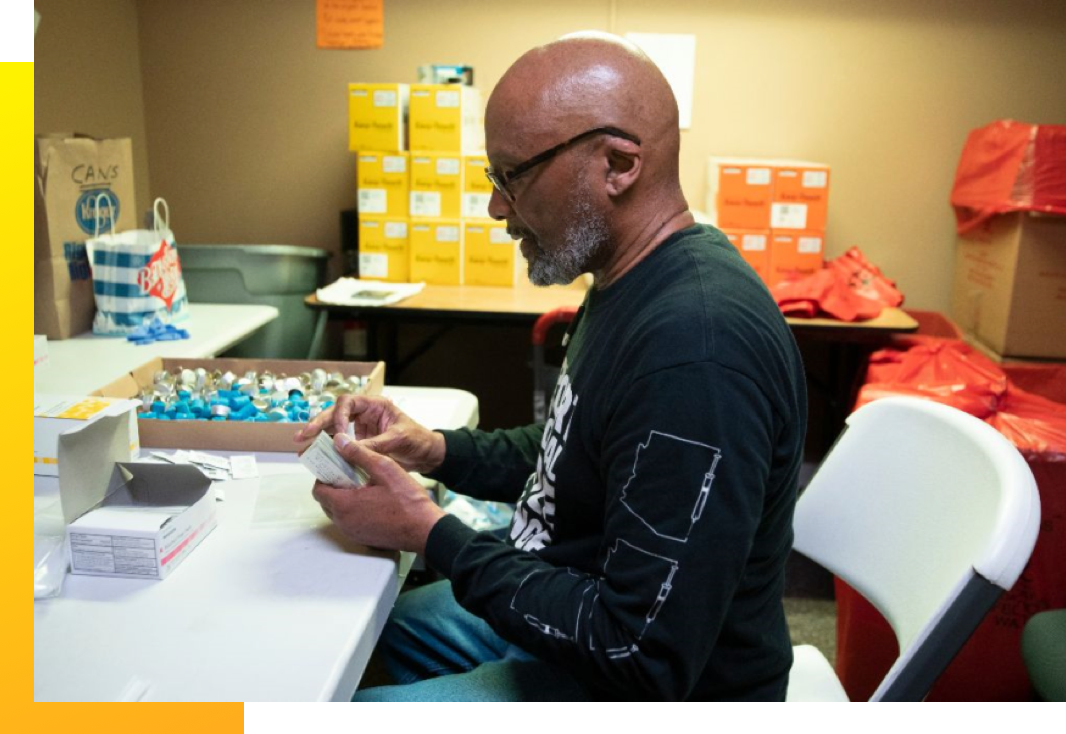Supporting Nationwide Access to Syringe Service Programs
Credit: Holly Bradford
Syringe service programs (SSPs) make sterile syringes accessible to people who use drugs.
Access to sterile syringes is an evidence-based public health service that reduces HIV and hepatitis C infection rates by as much as 50 percent. SSPs offer a place to connect with other resources like housing, health care, and drug treatment. And they’re often one of the only places where people who use drugs can find respite and connection.
National Harm Reduction Coalition is committed to mobilizing communities to ensure syringe access for all.
Know the Facts about Syringe Service Programs (SSPs)
There are many misconceptions about syringe exchanges and whether or not they promote drug use. Thirty years of research proves SSPs are safe, effective, cost-efficient, and important in improving the health and wellbeing of people who inject drugs.
We’re not a research or data house, so we get our facts from the Centers for Disease Control.


Syringe Access State-by-State
States are responsible for setting policies that make sterile syringes accessible. We’ve seen some major victories in recent years but still have a ways to go.
This Syringe Access State Policy Landscape Report maps out what syringe access policy looks like state-by-state. See how your state stacks up.
Ensure Syringe Access in Your Community
Need tips on running your syringe exchange program?
Read the Guide to Developing and Managing Syringe Access Programs.
